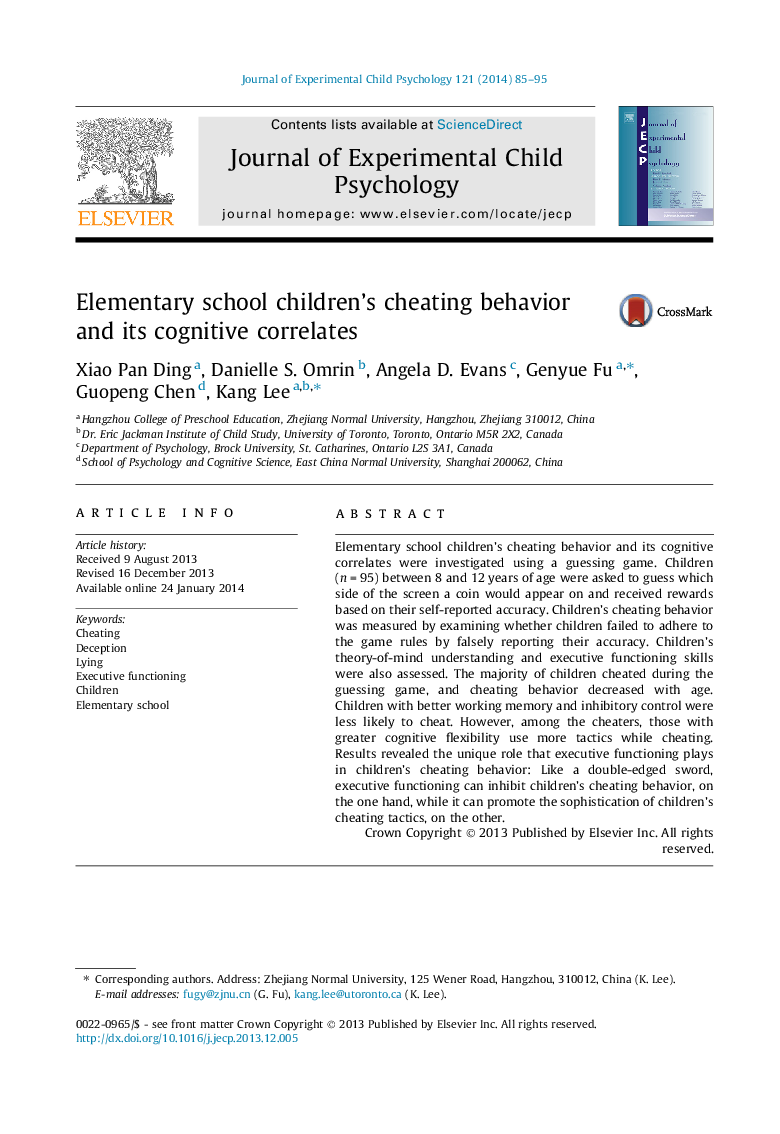| کد مقاله | کد نشریه | سال انتشار | مقاله انگلیسی | نسخه تمام متن |
|---|---|---|---|---|
| 918078 | 1473491 | 2014 | 11 صفحه PDF | دانلود رایگان |
• We examined the development of cheating behavior in elementary school children.
• We designed a new paradigm to explore children’s cheating behavior.
• EF but not ToM was significantly related to children’s cheating behavior.
• EF can inhibit cheating behavior, and promote the use of cheating tactics.
Elementary school children’s cheating behavior and its cognitive correlates were investigated using a guessing game. Children (n = 95) between 8 and 12 years of age were asked to guess which side of the screen a coin would appear on and received rewards based on their self-reported accuracy. Children’s cheating behavior was measured by examining whether children failed to adhere to the game rules by falsely reporting their accuracy. Children’s theory-of-mind understanding and executive functioning skills were also assessed. The majority of children cheated during the guessing game, and cheating behavior decreased with age. Children with better working memory and inhibitory control were less likely to cheat. However, among the cheaters, those with greater cognitive flexibility use more tactics while cheating. Results revealed the unique role that executive functioning plays in children’s cheating behavior: Like a double-edged sword, executive functioning can inhibit children’s cheating behavior, on the one hand, while it can promote the sophistication of children’s cheating tactics, on the other.
Journal: Journal of Experimental Child Psychology - Volume 121, May 2014, Pages 85–95
